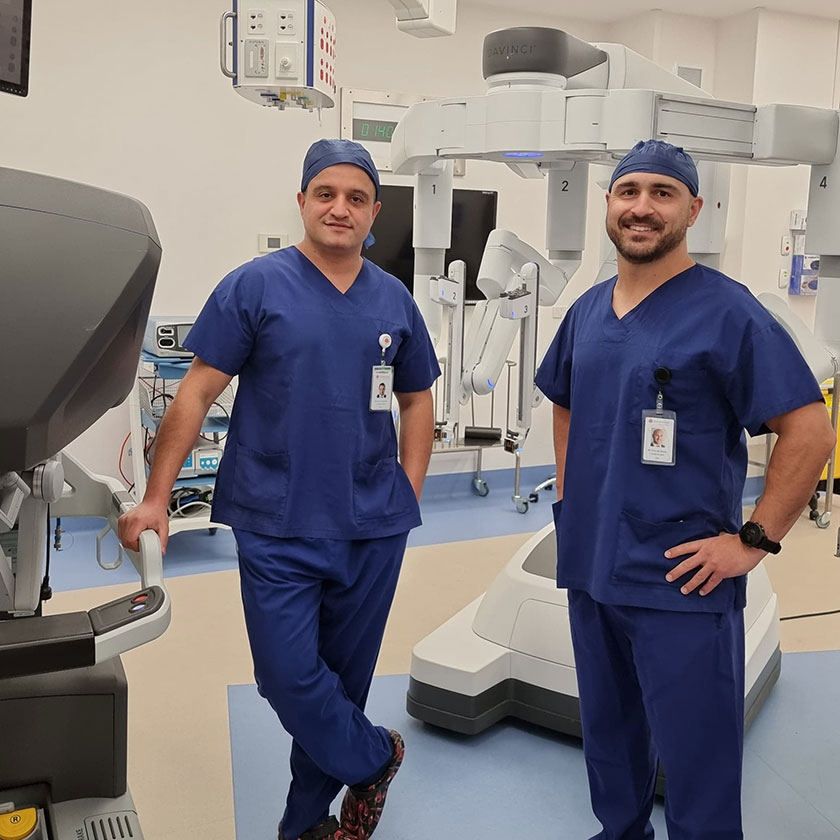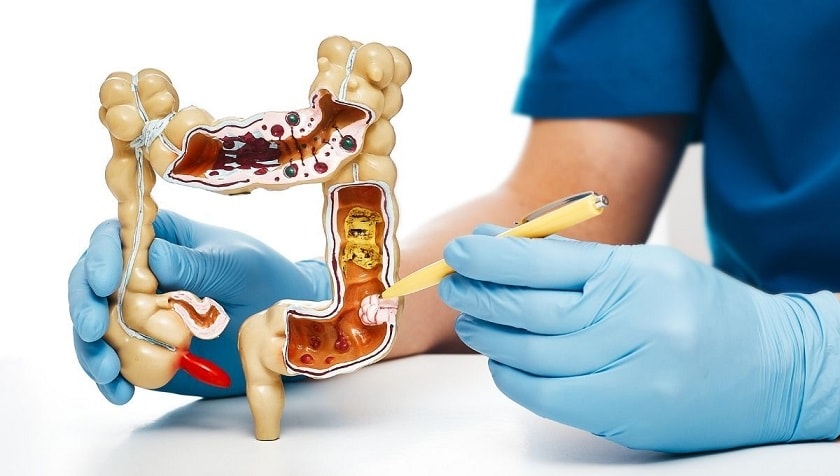At St John of God Berwick Hospital, our urologists commonly see patients who have continence concerns that affect their quality of life. The good news is that in many cases, incontinence can be better managed or even cured.
What is continence?
Urinary continence is defined as the ability to control your bladder until there is a socially acceptable place to empty it. Incontinence is the loss of voluntary control of the bladder, often resulting in the leakage of urine.
Urinary incontinence can range in severity, from an annoying dribble when you’ve finished urinating, to always feeling as though your bladder is full, even after just having been to the toilet, or not having any control and continually leaking. Unexpected urine loss can have a profound effect on a person’s life, and often leads to men being much less socially active.
When we talk about incontinence in males, there are three main types:
1. Stress incontinence – when outside pressure (such as a sneeze, cough, or heavy lift) causes an already weakened bladder to leak urine
2. Urge incontinence – when you get a strong urge to urinate but don’t make it to the toilet in time
3. Overflow incontinence – when an outlet obstruction (such as an enlarged prostate) causes the bladder to overfill and leak, much the same way as overfilling a cup of water.
Understanding the male urinary tract anatomy
Before gaining an understanding of the causes of urinary incontinence in men, it can help to firstly understand the anatomy of the male urinary tract.
- The kidneys filter the blood, collecting waste (urine)
- The urine is carried down a narrow tube from each kidney (the ureters) into the bladder, where it is stored
- The bladder is a hollow, strong, muscular organ that holds the urine, until the person feels that it is full, and needs to empty it (storage function)
- Once the person has reached the toilet, the pelvic floor muscles (located as the base of the pelvis) relax, as the brain signals the bladder to contract, squeezing the urine out through the urethra (tube from the bladder to the outside)
- As the bladder contracts (voiding function), there are internal and external sphincters that relax. During storage, these sphincters hold the urethra shut to prevent leakage. In men, the internal sphincter is located at the bladder neck, and the external sphincter surrounds the entire urethra.
The entire urinary system is supported by the pelvic floor muscles, which run from the tip of the tailbone through to the pubic bone (the bone at the front of the pelvis).
What causes incontinence in men?
There are many reasons why men may experience problems with continence. The most common cause is BPH or prostate enlargement which causes obstruction of the urethra (the tube that carries urine from the bladder to the outside of the body). Other causes include a damaged urethra (urethral stricture), an overactive bladder or nerve damage (from neurological conditions, diabetes or surgery), and infections of the urinary tract or prostate. Men may on occasion also experience a degree of incontinence following prostate surgery.
Incontinence related to prostate problems
Most commonly, continence issues in men are caused by conditions of the prostate, or the treatments that are required to treat those conditions. These typically include:
- BPH (benign prostatic hyperplasia) – this is non-cancerous enlargement of the prostate, which usually affects middle aged men. The prostate gland increases in size, causing restriction of the urethra and affecting the flow of urine
- Prostate cancer – this is the most common cancer that affects men. While the cancer itself does not usually cause incontinence symptoms, some of the highly effective treatments that are used to treat the cancer can lead to the development of urinary incontinence. In most patients the incontinence symptoms are only temporary following the cancer treatment, but in some cases it persists.
Since urinary symptoms associated with prostate problems are common, any man experiencing urinary symptoms should speak with their GP, who will be able to advise on next steps for correct diagnosis and treatment of their symptoms.
It is recommended that men over the age of 50 have a regular prostate check-up. Those with a family history of prostate cancer should begin having these check-ups at the age of 40.
Other causes of incontinence in men
Some other causes of male urinary incontinence may include:
- Disorders of the nervous system, such as Parkinson’s disease or stroke
- Certain medications
- Chronic medical conditions, such as diabetes.
Where to seek help
In many cases, incontinence can be effectively prevented, better managed, or even cured. If you or someone close to you is suffering with incontinence issues, you are encouraged to speak with your GP and obtain a referral to one of our urologists.
Find a specialist.
St John of God Berwick Hospital Urologists, Dr Shekib Shahbaz and Dr Tony de Sousa, of Melbourne Urology Centre have several fact sheets related to prostate conditions which can be found on their website: www.melbourneurologycentre.com.au
Dr Shekib Shahbaz
MBBS (Hons), Dip Surg Anat, FRACS (Urol)
Dr Shekib Shahbaz is an Australian-trained urologist and current supervisor of urology training at Monash Health. Shekib specialises in urological stone disease, advanced robotic surgery, voiding difficulties, penile prosthesis and incontinence surgery, advanced laparoscopic surgery and major open surgery. He is actively involved in teaching, research, and ongoing personal professional development. Dr Shahbaz’s compassionate approach and cultural awareness sees him well liked by patients of all ages and backgrounds.
Dr Tony de Sousa
 MBBS (Hons), FRACS (Urol)
MBBS (Hons), FRACS (Urol)
Dr Tony de Sousa is a Melbourne-trained Urologist specialising in treatment of kidney stones, laparoscopic and robotic cancer surgery, and minimally invasive treatments for prostate enlargement (BPH). He provides the highest standard of individualised, patient-focused care, with clear communication, a caring approach and attention to detail.
Alternatively, the National Continence Helpline can also be contacted for confidential advice on 1800 33 00 66.







